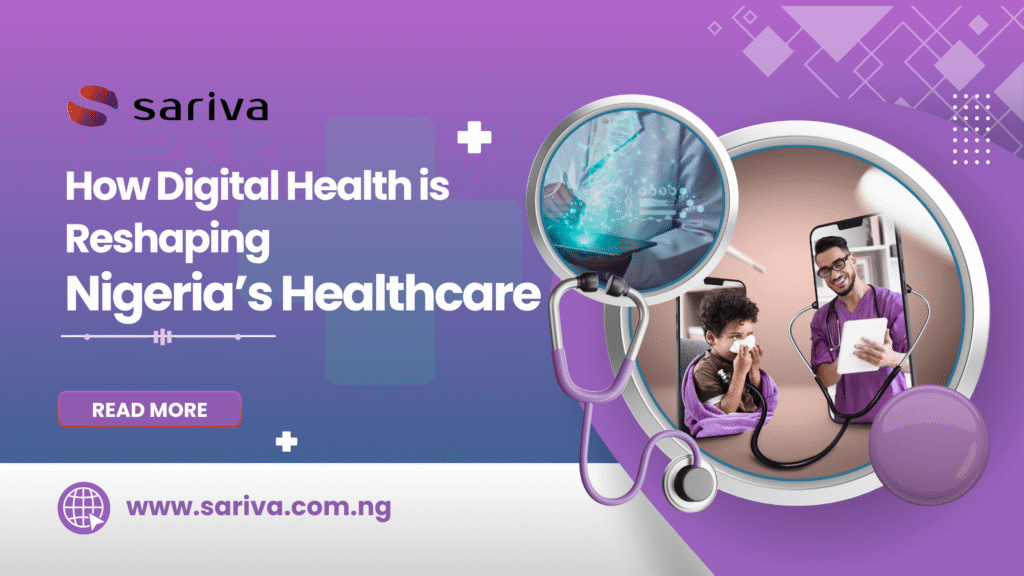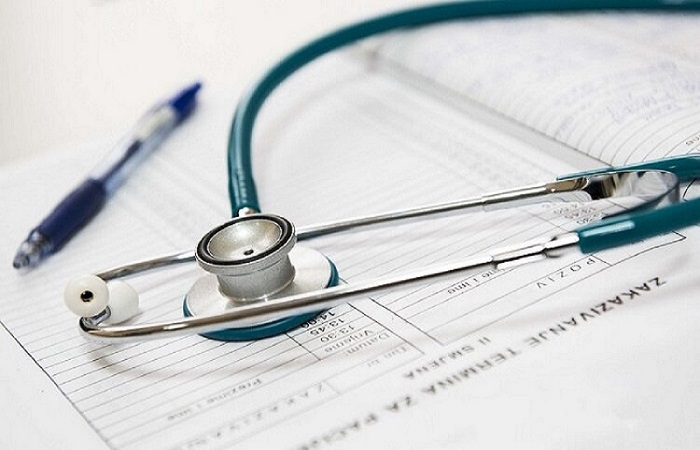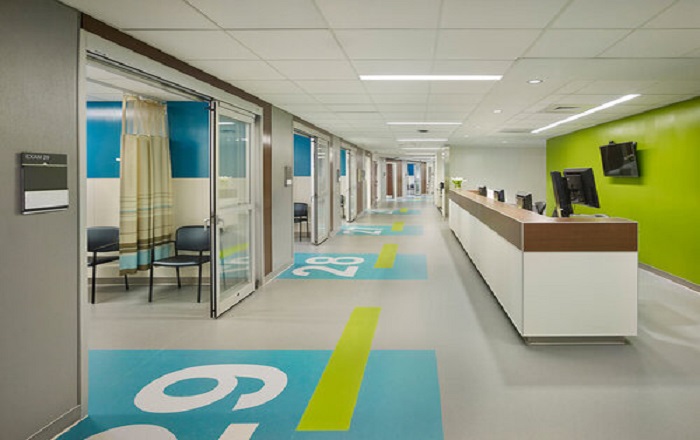The Shift Is Digital
Digital health is no longer futuristic. It’s functional. It is not just about convenience; it’s about life-saving access. And it is steadily reshaping how care is delivered, tracked, and managed across Nigeria.
Healthcare in Nigeria is changing and no, not just in theory.
The need for accessible, efficient, and modern care has never been greater. With approximately five out of ten Nigerians living in rural areas (World Bank), the traditional model of care, which relies on physical hospitals, crowded waiting rooms, and handwritten records, simply doesn’t cut it anymore. That’s where digital health comes in.
What Exactly Is Digital Health?
It is not a single tool or platform. It is a broad category that includes several innovations working together to make care more efficient, connected, and responsive to patient needs.
Digital health is more of an umbrella term, and here’s the breakdown in plain terms:
- Telemedicine: Seeing a doctor without physically being there, often through video or phone calls.
- Electronic Health Records (EHRs): Digital systems that replace handwritten files with secure digital patient files that make it easier to store, retrieve, and share patient information.
- Remote Monitoring Tools: Devices that track vitals from a distance. They can monitor blood pressure, oxygen saturation, glucose levels, heart rate, and other vital signs.
- Mobile Health Apps: For appointment booking, follow-up alerts, symptom checkers, or even medication reminders.
Together, these tools do not replace hospitals, medical devices, or physical care. Instead, they complement the traditional system to reduce delays and improve communication and the reach of healthcare services.
Why Nigeria Needs Digital Health Now More Than Ever
Let’s be honest, healthcare in Nigeria faces real, systemic challenges:
- Doctor-to-patient ratios are among the worst globally, at approximately 4 doctors per 10,000 people (WHO).
- Many communities still travel for hours to see a licensed health provider.
- Patient records are often still handwritten, missing, or duplicated.
Digital health isn’t a magical fix, but it certainly helps. It bridges the urban-rural care gap, reduces dependency on overcrowded hospitals, and introduces efficiency where it’s missing.
Key Areas Being Transformed by Digital Health
a. Telemedicine Is Shrinking Distances
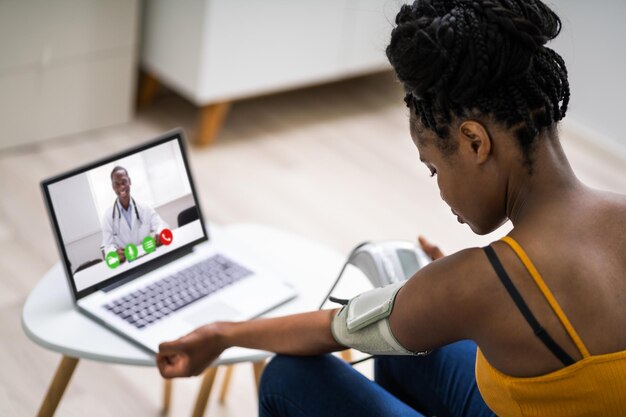
No traffic, no waiting rooms, and no “come back next week” delays. Patients can now access care via phone or app for minor ailments or follow-ups. Clinics like Mobihealth are already deploying these solutions.
b. Electronic Health Records (EHRs) Cut the Clutter
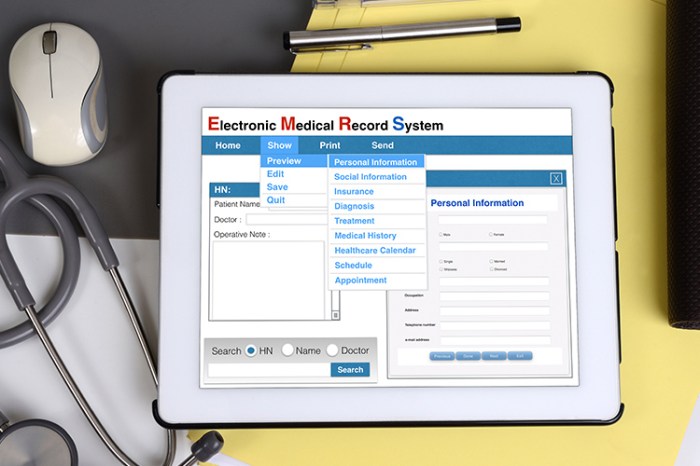
Paper files are prone to loss and error. EHRs help doctors make better, faster decisions while reducing life-threatening mix-ups.
c. Smart Monitoring Tools Empower Preventive Care

With tools like remote ECGs, smart watches, BP monitors, and glucometers, chronic care can now be managed from home. This reduces hospital admissions and enables real-time tracking, especially for patients who are hypertensive and diabetic.
d. Health Tech Infrastructure Is Becoming Part of Medical Setups
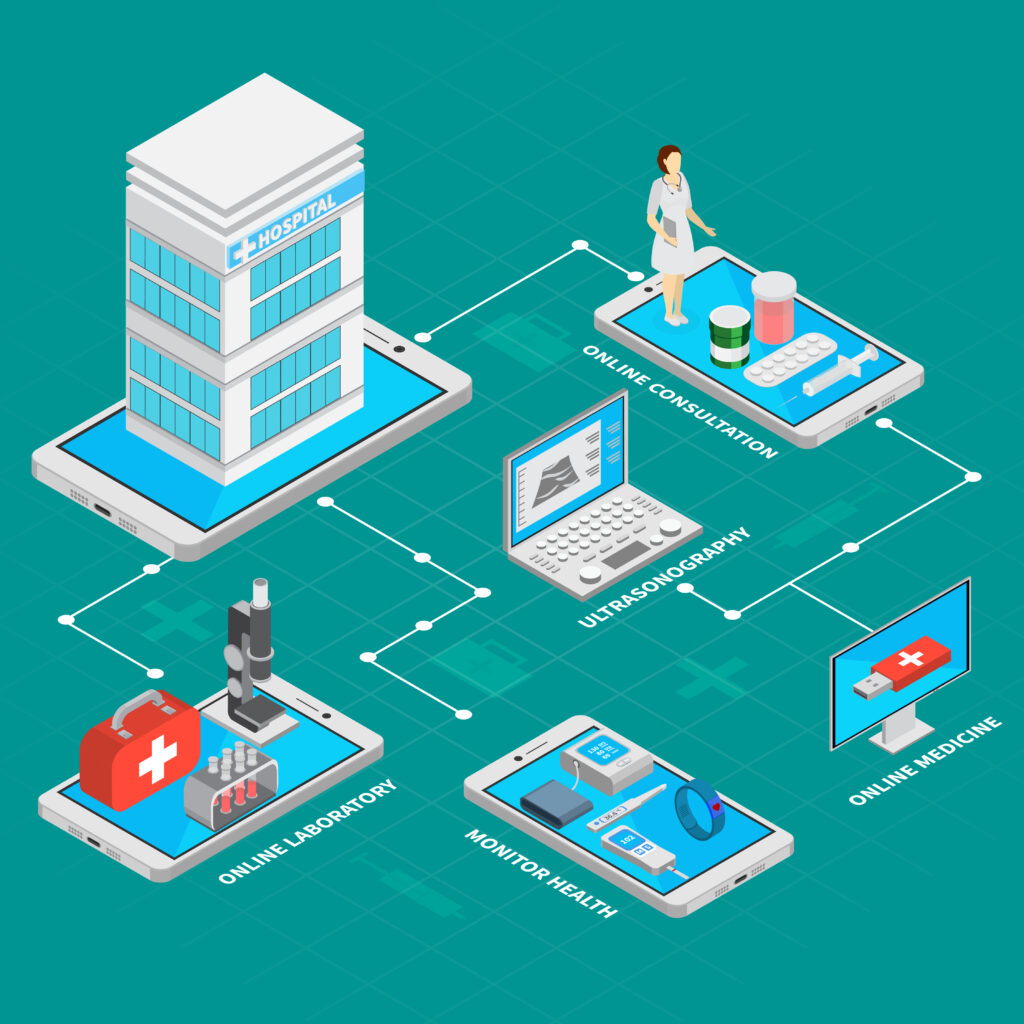
Hospitals being set up in Nigeria today are increasingly designed with digital readiness at their core. Internet-backed diagnostics, solar-powered telehealth rooms, and EHR-compatible devices are no longer optional luxuries but essentials.
Barriers Slowing Down the Shift
It’s not all smooth sailing. Several factors are slowing down its adoption:
- Poor internet coverage in rural areas (only about 48% broadband penetration) (NCC May 2025).
- Lack of digital literacy among some healthcare staff.
- Inconsistent power supply and outdated infrastructure.
- Policy gaps, especially in telemedicine regulation and data privacy.
Despite these, digital health is growing. More facilities, particularly private clinics and diagnostic centres, are now integrating digital tools as part of their growth strategy.
The Role of the Private Sector in Driving Digital Adoption
Candidly, it’s the private health sector leading the digital charge in Nigeria.
From telemedicine-enabled clinics in Lagos to digitized diagnostic centres in Abuja, forward-thinking providers are proving that the healthcare setup in Nigeria must evolve.
Private hospitals are also more willing to invest in compatible medical devices, integrate EHRs, and train staff because efficiency affects revenue, and digitization improves outcomes.
Partnerships between digital health startups and private hospitals are rapidly growing. These collaborations offer mutual benefits, including faster service delivery, improved patient tracking, and reduced operating costs.
What This Means for Hospital Projects and Medical Setups
If you’re building or renovating a medical facility in Nigeria today, you can’t afford to think “brick and mortar” alone.
Digital readiness is now a strategic advantage. Here’s what that means in practical terms:
- Design layouts that support EHR systems and device integration.
- Ensure internet connectivity and power backup infrastructure.
- Equip consultation and diagnostic rooms with digital-compatible medical devices.
- Train staff for basic tech usage and remote coordination.
Forward-thinking hospital building in Nigeria now factor in digital workflows from day one, from diagnostics to patient records.
At Sariva Healthcare, we’ve seen how a digitally aware medical setup isn’t just a bonus, it’s the baseline.
Whether you’re looking to set up a new facility, renovate a clinic, or invest in hospital expansion, ensuring digital health compatibility from the start protects your investment and makes your facility future-ready.
Nigeria’s Healthcare Future Is Inevitable
For providers, investors, and hospital owners, the next big leap isn’t just about more beds or more buildings. It’s about smarter care powered by technology, driven by data, and supported by infrastructure that can keep up.
And if you’re thinking about what a digital-ready medical setup in Nigeria should look like, Sariva is always ready to help you build, equip, and future-proof it.

